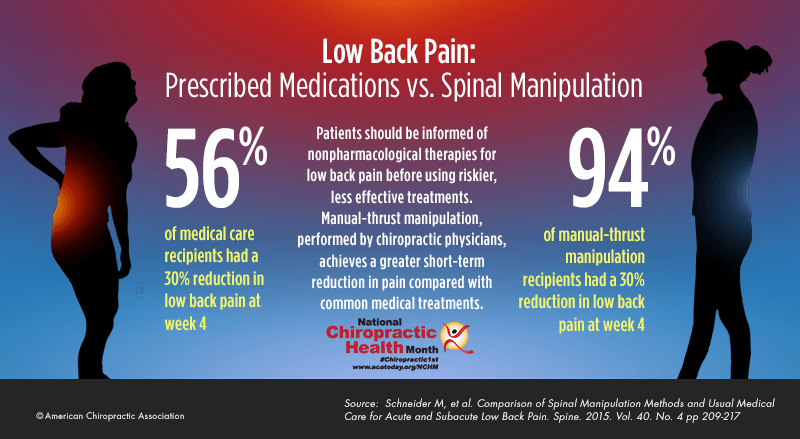

A Comparison of Chiropractic, Medical and
Osteopathic Care for Work-related Sprains and StrainsThis section is compiled by Frank M. Painter, D.C.
Send all comments or additions to: Frankp@chiro.org




FROM: J Manipulative Physiol Ther 1989 (Oct); 12 (5): 335–344
Johnson MR, Schultz MK, Ferguson AC
Technique Department,
Palmer College of Chiropractic,
Davenport, IA 52803

FROM: Schneider ~ Spine 2015 (Feb 15) Weeks ~ JMPT 2016 (Feb)The cost of care and the number of days lost because of work injury were analyzed from information gathered in a postal card survey sent to all Iowa back or neck injury claimants (sprain/strain) on record for 1984. Descriptive findings for the flow of care of the respondents were evaluated and a comparison made of the benefits and costs of care received by patients treated by chiropractic doctors (DCs), medical doctors (MDs) or osteopathic doctors (DOs).
The analysis focused on those workers who lost enough time from work to qualify for compensation (4 days or more), whose cases were closed and who received all their care from one health professional. For those who received care from DCs (n = 266), the mean number of compensated days lost from work was at least 2.3 days less than for those who were treated by MDs (n = 494; p less than 0.025) and at least 3.8 days less than for those who were treated by DOs (n = 102; p less than 0.025). Consequently, much less money in employment compensation was paid, on the average, to those who saw DCs.
Findings on provider care costs are less clear-cut because care-cost data on only a portion of the cases was recorded on the State records used. For the data available, the median provider cost was highest for patients who saw DCs, but the mean was highest for those who saw MDs. The study showed that 38% of claimants did change doctors. When change of provider occurred, days lost from work and cost of care varied widely across the care options, but generally, fewer workdays were lost and lower amounts of disability compensation and provider cost paid when chiropractic was included in the care pattern.

Return to COST-EFFECTIVENESS
Return to "Testimony to the Department of Veterans Affairs"
Since 5-11-2003


| Home Page | Visit Our Sponsors | Become a Sponsor |
Please read our DISCLAIMER |